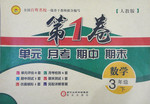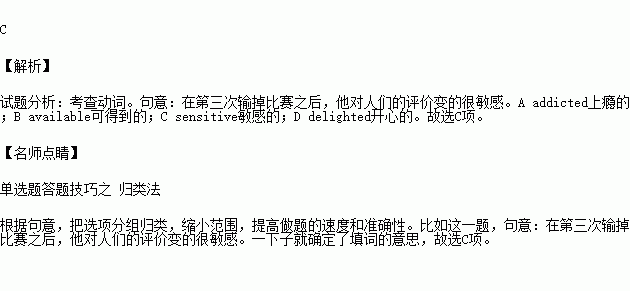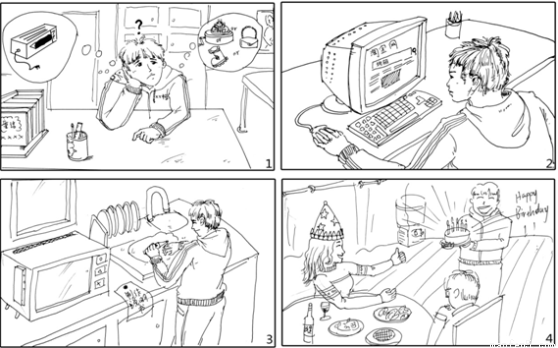题目内容
After losing the match for the third time, he became _________ to what others said about him.
A. addicted B. available C. sensitive D. delighted
 第1卷单元月考期中期末系列答案
第1卷单元月考期中期末系列答案Welcome to the Electronic Village to explore new ways of language teaching and learning.
Electronic Village Program (Thursday, June 18, 2015) | |
Nearpod ? 9:00 a.m. to 10:00 a.m. ? Room 501 Nearpod is a software program that creates a rich context (语境) for students to learn vocabulary. The presenter will show how to use it. | TEO ? 2:00 p.m. to 3:00 p.m. ? Room 502 Our students come from different backgrounds but have the same desire to learn on-line. The presenter will use examples from his first on-line class to explain how any teacher can begin teaching on-line with TEO. |
Kahoot ? 10:30 am to 11:30 am ? Room 601 Kahoot software can be used to create grammar tests which can be graded on a network. It can provide students with instant feedback (反馈), including reports about their strengths and weaknesses. | Prezi ? 3:30 pm to 4:20 pm ? Room 602 Uses of Prezi in listening and speaking courses draw students' attention to speaking more fluently. The presenter will show how students can use Prezi to confidently present on a variety of topics, including introducing family, friends, and hobbies. |
1.A teacher who wants to learn on-line teaching is expected to arrive by ______.
A. 9:00 a.m. B. 2:00 p.m.
C. 3:30 p.m. D.10:30 a.m.
2.If you want to improve your speaking skills, you can go to____________.
A. Room 501 B. Room 502
C. Room 601 D. Room 602
3.Nearpod can be used to ______.
A. offer grammar tests B. teach listening on-line
C. help vocabulary learning D. gain fluency in speaking


